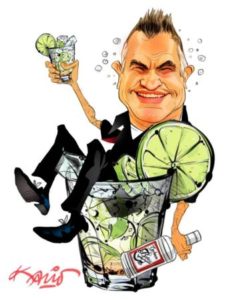By Roger Costa
EVERYTHING WENT FINE
For most of us, poor little mortals, aging, suffering and approaching death might be an exhausting, horrifying and unbearable situation to cope with. When we are young there’s not much time to spend reflecting in such a phase that life won’t spare none of us from. And whatever the situation is, whatever decisions are made and experiences are taken, everyone around us gets affected by the precious, adorable yet difficult journey of living and its final moment. Some older folks have now-a-days the privilege to deal with this matter at their own consent. Some seek to end their life journey, in an attempt to end their suffering from aging illness, joining programs like “the right to end your life”, made available somewhere in Europe. But is ending your own life a privilege, a curse, a disgrace or a weakness? How tough can someone battle their own destiny, their own hopeless physical condition? What’s the limit for enduring human suffering, what’s the reason for all these inescapable circumstances, is really worth fighting for living, even under painful and humiliating conditions?
It is not hard to find an answer for yourself, especially if you believe that living is a precious gift from God that only He should take away from. But my personal perspective doesn’t stop me from appreciating others’ point of view in such controversial case. And then comes Francois Ozon. This brilliant French auteur has been examining human desire, co-dependence and complicated relationships for the past two decades, confirming himself as one of Europe’s leading filmmakers (and one of my personal favorite ones). A constant presence at Cannes and other prestigious Festivals around the globe, he went there to premiere this marvelous, melancholic, delicate and oddly funny drama, where it was nominated for the Palm D’or, as well as Acting Awards for its leading players. Fans of the provocateur will immediately notice some different aesthetic in this narrative, as it opens following the reactions of an artist who unexpectedly is assigned to take care of her father who just had a stroke and is landed in the hospital. A few minutes in and the film grabs you by the moral conscience with a striking note: the father persuades his daughter to help him end his life, as he is incapable of dealing with the suffering. But what it first seems to be a difficult and hard drama to digest, it turns out to be a wonderful, enriching portrait of family bond, respect, and the human right of free will. Ozon builds up this slowburn drama with his usual elegance, appealing techniques and social/humanistic engagement, meticulously observing each of these players’ motives, reactions and expectations for the aftermath. When Emmanuele is asked for such task from her father, she is obviously not ready or even thinking about entering this “dance”, as he states. But she wants to make it right to him, giving back the respect he has always provided to her and the rest of the family, despite his ambiguous, complicated relationship to her mother, and his inclinations to male gigolos. But she won’t back up on her principles. She believes differently, she believes he should continue the fight, so she will look for reasons and stimulus in order to make him change his mind. Will that work? Is it a selfish solution, as she is thinking of herself, and not of his suffering? Who is actually playing God? Is he? Or is she representing God in a positive way, interfering on his drastic decision, pulling him out from darkness and shining hope for the future?
Anchored by powerful performances from the cast, the always incredible, reliable and sophisticated Sophie Marceau and veteran iconic star Andre Dussollier, Ozon, adapting from the autobiographical memoir by Emmanuele Bernheim (novelist who wrote some of his films, including “Swimming Pool”), crafts another intricated, gorgeously executed drama, adding one more pearl to his collection. Instead of studying desire and sexuality, Ozon changes the pace here, for good: the result is an enchanting, sad indeed, yet profoundly humane family canvas.
(Cohen Media Group. 4/14. Quad Cinema.)

TOMMY GUNS
Winner of the Best European Film at Locarno, and an audience favorite at this year’s New Directors/New Films Festival, Carlos Conceicao’s blazing and shape-shifting sophomore project establishes him as a promising new auteur. His seductive, easily penetrable, yet enigmatic and deadpan style is a fascinating mashup of psychological thriller, dark comedy, horror and sociopolitical and geographical commentaries. Set in 1974, during the Angolan/Portuguese colonization war, the film is seen through a meta, Avant-garde atmosphere, observing the effects of sex, tradition and violence over some paranoid Portuguese soldiers, and ritualistic local villagers. Divided into three acts, Conceicao conducts the material with firm, stylish hands, punctuated by a sense of dangerous magical realism: the first as a lyrical, romantic and biracial coming of age story, the second a tale of betrayal and revenge, and the third is an encounter between eroticism and “the beyond”, making it a twisty, inventive conclusion. A marvelous example of the new, exciting and revolutionary cinema coming from an emerging talent.
(Kino Lorber. 4/14. BAM.)



















Comments